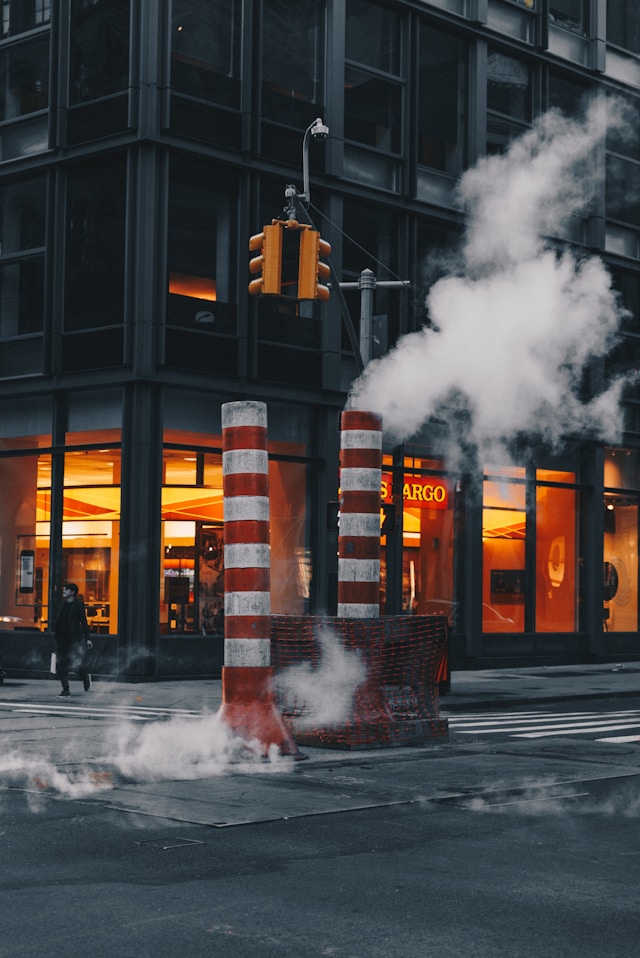Premises Liability in California

Premises liability is a legal concept that revolves around the responsibility of property owners or occupiers to manage their premises diligently. This ensures safety of those who enter their property. This legal duty stems from the possession of the property and the accompanying right to control and manage it. In this blog post, we delve into the premises liability in California. We explain its elements, unique aspects and how it can affect individuals.
What is Premises Liability?
Premises liability is a legal concept that holds property owners or occupiers responsible for injuries or damages that occur on their premises due to unsafe conditions. The basic idea is that individuals who own or control a property have a legal duty to ensure that the premises are safe for those who enter. If a person is injured on someone else’s property due to negligence – such as inadequate maintenance, unsafe conditions, or failure to warn about potential hazards – the property owner may be held liable for the resulting injuries. Premises liability cases often involve slip and fall accidents, but they can also encompass a wide range of situations, including negligent security, dangerous conditions, or inadequate maintenance of the property.
Types of Premises Liability Claims
Premises liability cases can arise in various situations where someone is injured on another person’s property due to unsafe conditions or negligence. Some common types of premises liability cases include:
- Slip and Fall Accidents: These occur when someone slips, trips, or falls due to a hazardous condition on the property, such as wet floors, uneven surfaces, or inadequate lighting.
- Inadequate Maintenance: Property owners have a duty to maintain their premises. Cases may arise if injuries occur due to poorly maintained structures, walkways, or facilities.
- Negligent Security: Property owners may be held liable if someone is harmed due to inadequate security measures, leading to criminal activities such as assaults, robberies, or other violent acts.
- Dangerous Conditions: This encompasses a broad category of cases where injuries result from hazardous conditions on the property, such as defective stairs, broken handrails, or other structural defects.
- Dog Bites: If a property owner has a dog, they may be liable for injuries caused by the dog, especially if they were aware of the dog’s aggressive tendencies.
- Swimming Pool Accidents: Property owners with swimming pools must take precautions to prevent accidents. Injuries related to drowning, slips, or inadequate fencing may lead to premises liability claims.
- Retail Store Incidents: Customers injured in stores due to poorly maintained premises, falling merchandise, or other hazards may have grounds for a premises liability case.
- Amusement Park Accidents: Injuries at amusement parks may result from poorly maintained rides, inadequate safety measures, or operator negligence.
- Snow and Ice Accidents: Property owners in snowy or icy conditions must take reasonable steps to clear walkways and prevent slip and fall accidents.
- Elevator and Escalator Accidents: Injuries resulting from poorly maintained or malfunctioning elevators and escalators can lead to premises liability claims.
It’s important to note that the specifics of premises liability cases can vary, and liability depends on factors such as the relationship between the injured party and the property owner, the foreseeability of the hazard, and the property owner’s awareness of the dangerous condition. If you believe you have a premises liability case, consulting with a legal professional is essential to understand your rights and options.
Variety of Premises Liability Cases
Premises liability includes a broader class of injuries beyond slip-and-falls. . Beyond the conventional idea of physical accidents, premises liability extends its reach into more intricate aspects, including design considerations. For example, a negligent street design can give rise to a premises liability claim. This scenario underscores that the responsibility of property owners or occupiers not only involves maintaining the premises but also extends to the initial design elements.
Consider a situation where a property owner neglects essential safety features in the design of, say, a recreational facility or a transportation-related structure. If an injury occurs due to this negligent track design, it can serve as grounds for a premises liability claim. In such cases, the property owner’s duty goes beyond the day-to-day upkeep of the premises; it includes ensuring that the original design is free from flaws that could pose risks to individuals using the space.
Furthermore, premises liability is not solely confined to the actions of the property owner. It also encompasses the actions of third parties. Whether these actions are criminal or negligent, a crucial factor is the connection between the harm suffered and the actual condition or activities on the property. This implies that property owners may be held liable for injuries caused by others. This includes, criminal acts or negligence by third parties. But a discernible link between the actions and the unsafe conditions on the property are necessary to establish liability.
Premises liability extends its jurisdiction to cover a spectrum of scenarios. Property owners’ responsibilities transcend routine maintenance. They have a continuing duty to safely maintain their property. This nuanced perspective ensures that the legal principles surrounding premises liability remain adaptable to the evolving complexities of property-related incidents.
Understanding the Elements of Premises Liability:
Premises liability claims share common elements with negligence claims, including the establishment of a legal duty of care, a breach of that duty, and proximate cause leading to injury. However, what sets premises liability apart is its specific connection to the possession of premises and the associated right to control and manage them. The mere ownership of a property carries an affirmative duty to act responsibly to prevent harm to others. The basic elements of proving a claim include:
Duty of Care: Property owners owe a duty of care to individuals who enter their premises. This duty is to maintain the property in a reasonably safe condition and to warn of any known hazards.
- Breach of Duty
A breach of the duty of care occurs when the property owner fails to uphold the standard of care expected under the circumstances. This could involve inadequate maintenance, failure to address known hazards, or insufficient security measures.
- Causation
Causation establishes a direct link between the breach of duty and the injuries suffered. It must be shown that the unsafe conditions on the property directly led to the plaintiff’s injuries.
- Foreseeability
The property owner must have reasonably foreseen that the unsafe condition could cause harm. This involves considering whether a reasonable person in the same situation would have anticipated the potential danger.
- Proximate Cause
Proximate cause, also known as legal cause, connects the defendant’s actions to the plaintiff’s injuries in a way that is legally recognized. It helps determine whether the injuries were a natural and foreseeable consequence of the defendant’s negligence.
- Injury or Damages
The plaintiff must have suffered actual harm or damages as a result of the defendant’s negligence. This could include physical injuries, medical expenses, pain and suffering, or other losses.
- Notice
Depending on the jurisdiction, the injured party may need to demonstrate that the property owner had actual or constructive notice of the hazardous condition. Constructive notice implies that the property owner should have known about the dangerous condition through reasonable inspection.
These elements collectively form the foundation of a premises liability case. Establishing each element is crucial for a successful claim. It’s important to note that premises liability laws can vary by jurisdiction, so consulting with a legal professional who specializes in personal injury law is essential to navigate the specific requirements in your area and build a strong case.
Duty of Care and Legal Nuances:
The duty of care imposed on a landowner varies. It often depends whether individuals are expressly invited onto the premises or merely permitted. An applicable statute emphasizes that everyone is accountable not only for their willful acts but also for injuries resulting from their lack of ordinary care. This underscores the importance of understanding the legal nuances that come into play in different scenarios.
Legal Representation in Premises Liability
Navigating the complexities of premises liability is crucial for injury victims By understanding the legal principles, elements, and potential nuances involved in premises liability claims, victims can better advocate for their rights. Alternatively, injury victims may see k legal representation.
and seek appropriate compensation for the harm they have suffered. This comprehensive guide serves as a starting point for those seeking clarity on premises liability, empowering them with knowledge to make informed decisions in the pursuit of justice.









